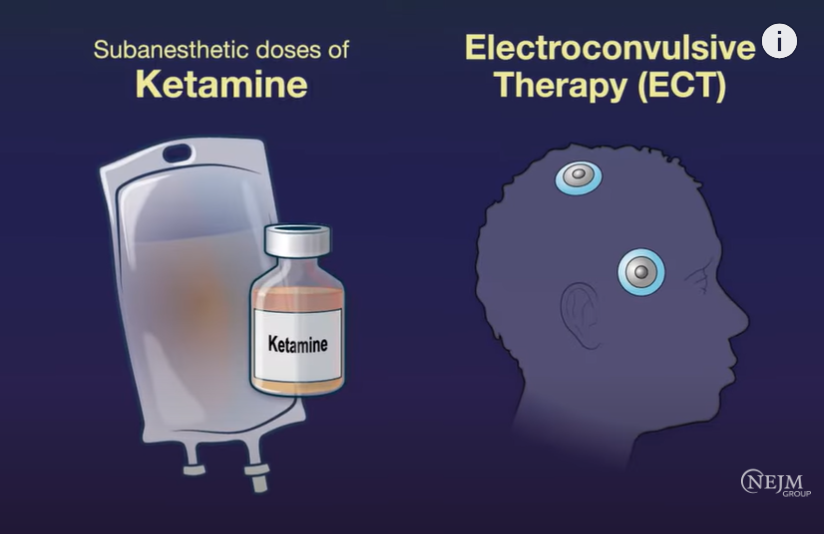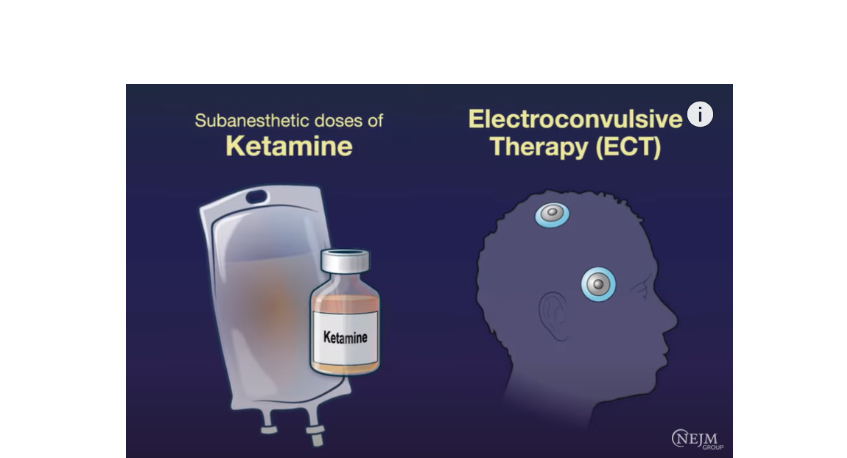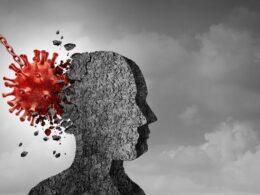HSI — Health Strategy Institute
multidisciplinary institute of continuous transformation
for in-person health
and digital health strategy
Joaquim Cardoso MSc
Chief Research and Editor — of the Health Strategy Portal;
Chief Strategy Officer (CSO) — of the Health Strategy Institute (HSI),
Senior Advisor — for Boards and C-Level
June 23, 2023
Key messages:
- Electroconvulsive therapy (ECT) and subanesthetic intravenous ketamine are both currently used for treatment-resistant major depression, …
- … but the comparative effectiveness of the two treatments remains uncertain.
- The conclusion of the study are that “Ketamine was noninferior to ECT as therapy for treatment-resistant major depression without psychosis.’
- ECT appeared to be associated with a decrease in memory recall after 3 weeks of treatment …
- ECT was associated with musculoskeletal adverse effects, whereas ketamine was associated with dissociation.
DEEP DIVE

Ketamine versus ECT for Nonpsychotic Treatment-Resistant Major Depression
NEJM
Amit Anand, M.D., Sanjay J. Mathew, M.D., Gerard Sanacora, M.D., Ph.D., James W. Murrough, M.D., Ph.D., Fernando S. Goes, M.D., Murat Altinay, M.D., Amy S. Aloysi, M.D., Ali A. Asghar-Ali, M.D., Brian S. Barnett, M.D., Lee C. Chang, M.D., Katherine A. Collins, M.S.W., Ph.D., Sara Costi, M.D., Sidra Iqbal, M.S., Manish K. Jha, M.D., Kamini Krishnan, Ph.D., Donald A. Malone, M.D., Sina Nikayin, M.D., Steven E. Nissen, M.D., Robert B. Ostroff, M.D., Irving M. Reti, M.D., Samuel T. Wilkinson, M.D., Kathy Wolski, M.P.H., and Bo Hu, Ph.D.
BACKGROUND
- Electroconvulsive therapy (ECT) and subanesthetic intravenous ketamine are both currently used for treatment-resistant major depression, …
- … but the comparative effectiveness of the two treatments remains uncertain.
METHODS
- We conducted an open-label, randomized, noninferiority trial involving patients referred to ECT clinics for treatment-resistant major depression.
- Patients with treatment-resistant major depression without psychosis were recruited and assigned in a 1:1 ratio to receive ketamine or ECT.
- During an initial 3-week treatment phase, patients received either ECT three times per week or ketamine (0.5 mg per kilogram of body weight over 40 minutes) twice per week.
- The primary outcome was a response to treatment (i.e., a decrease of ≥50% from baseline in the score on the 16-item Quick Inventory of Depressive Symptomatology–Self-Report; scores range from 0 to 27, with higher scores indicating greater depression).
- The noninferiority margin was −10 percentage points. Secondary outcomes included scores on memory tests and patient-reported quality of life.
- After the initial treatment phase, the patients who had a response were followed over a 6-month period.
RESULTS
- A total of 403 patients underwent randomization at five clinical sites; 200 patients were assigned to the ketamine group and 203 to the ECT group.
- After 38 patients had withdrawn before initiation of the assigned treatment, ketamine was administered to 195 patients and ECT to 170 patients.
- A total of 55.4% of the patients in the ketamine group and 41.2% of those in the ECT group had a response (difference, 14.2 percentage points; 95% confidence interval, 3.9 to 24.2; P<0.001 for the noninferiority of ketamine to ECT).
- ECT appeared to be associated with a decrease in memory recall after 3 weeks of treatment (mean [±SE] decrease in the T-score for delayed recall on the Hopkins Verbal Learning Test–Revised, −0.9±1.1 in the ketamine group vs. −9.7±1.2 in the ECT group; scores range from −300 to 200, with higher scores indicating better function) with gradual recovery during follow-up. Improvement in patient-reported quality-of-life was similar in the two trial groups.
- ECT was associated with musculoskeletal adverse effects, whereas ketamine was associated with dissociation.
CONCLUSIONS
- Ketamine was noninferior to ECT as therapy for treatment-resistant major depression without psychosis.
(Funded by the Patient-Centered Outcomes Research Institute; ELEKT-D ClinicalTrials.gov number, NCT03113968. opens in new tab.)
Originally published at: Ketamine versus ECT for Nonpsychotic Treatment-Resistant Major Depression | NEJM
QUICK TAKE VIDEO SUMMARY
Ketamine vs. ECT for Major Depression

Note from the Editor
According to the article “KETAMINE VS ECT: WHICH IS BEST FOR RESISTANT DEPRESSION”, published on the “Neuro Mend Blog”, on Jul 28, 2020″:
KETAMINE IS COST EFFECTIVE VS. ECT
Ketamine treatment is also cheaper in comparison to ECT in regard to receiving the actual treatment and not having to take off work for the periods of time required for ECT therapy.
Even though patients may still need to continue their anti-depressant medication for some time following Ketamine treatment (similar to ECT), Ketamine still appears to be the front runner in regard to the effectiveness of treating depression and the lack of disruption to the patient’s life to receive the treatment itself.
Source:
Ketamine vs ECT: Which Is Best For Resistant Depression (neuromendcenter.com)












